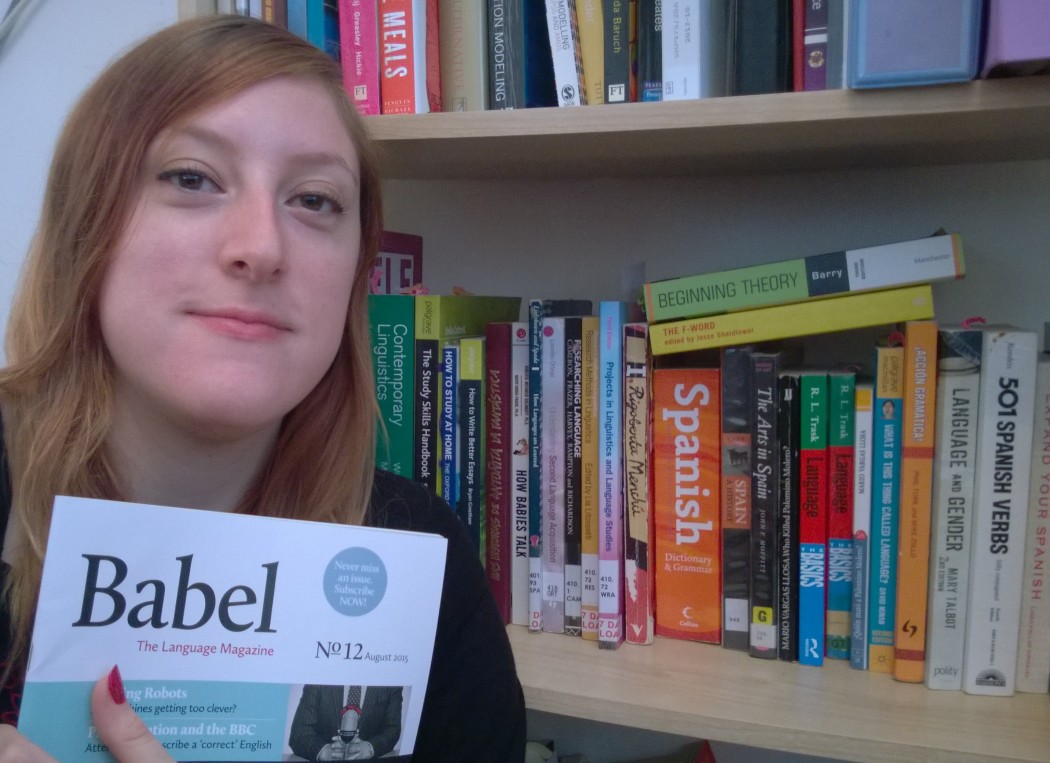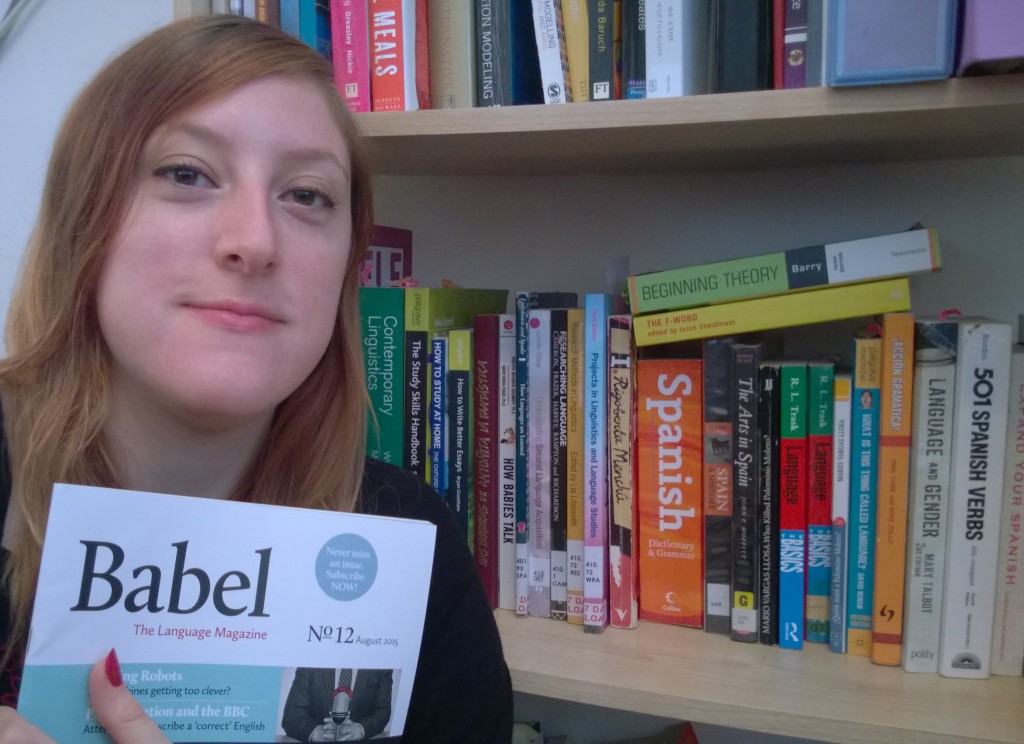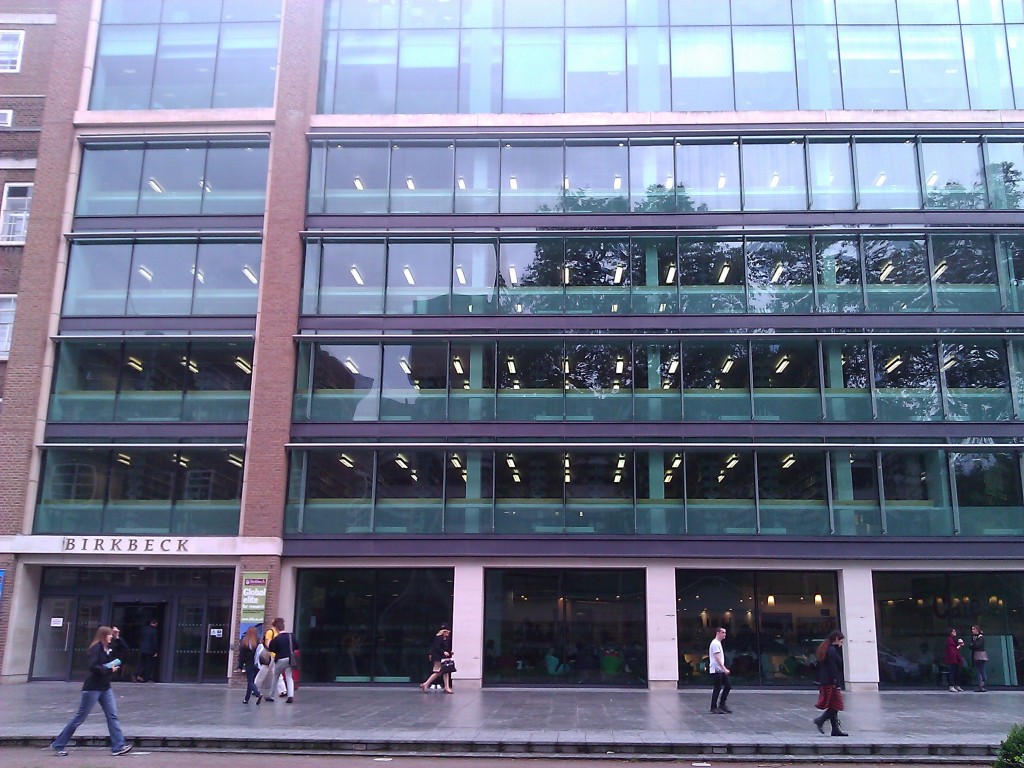We’re starting the week off with a positive and inspiring Uni Life interview. This time it’s with my friend Kat. The purpose behind this Uni Life interview series is to give prospective and current students an insight into life at university, what it takes to get there and how to survive. I hope that these interviews will give you a chance to learn from current and recently graduated students about the courses you’re interested in.
Today Kat tells us about life as a 4th year Linguistics and Languages student at Birkbeck.
What course are you studying at university?
I’m studying Linguistics and Languages. I’ve just completed 3rd year but I have another to go as it’s 4 years part-time.
How did you know this was the right course for you?
Partly because of the university. I go to Birkbeck which is part of the University of London, and the wonderful thing about it is that it’s mainly aimed at mature students who work during the day, so classes are in the evenings. It means I can still work nearly full-time as well as do my degree. But also, because not a huge amount of other places offer degrees in Linguistics, and when I read about this course, it sounded perfect – I was excited about it from that moment. The other thing is that Birkbeck accepts people based on life experience; you don’t necessarily need UCAS points or A-levels, depending on the subject you choose. So I needn’t probably have done my A-levels, but they’ve been a world of help in preparing me for my degree, so I’m glad I did.
What do you enjoy most about your course?
I love being at Birkbeck – the classes are so diverse and full of people with a variety of experience and insight which makes it really interesting and engaging. Students range from 18-88 in my experience, but most are in their 20s like me. I’m studying Spanish as my chosen language and that has been a really rewarding and also challenging experience, I got to go on a 2-week study abroad programme in Valladolid paid for by the uni which was awesome. I also love the fact that there is almost literally nothing about linguistics that doesn’t interest me – from child language acquisition, to forensic linguistics and phonology and syntax to the origins of languages, I’m always fascinated.
Do you have any career plans in mind for when you’ve graduated?
I wasn’t clear about my future career when I started, but I am now. I want to teach, probably English as a second language to adults if the funding for that age group doesn’t completely disappear. There is little that makes me feel more happy and passionate (career-wise) than helping others and specifically helping them to learn. I changed jobs 7 months ago and am now part of the Here to Help team in an FE College, so I’m building up work experience in an educational setting already.
What keeps you motivated?
For me it’s mostly the desire to prove to myself that I can do it. I never thought I’d want to do a degree or be capable of it, but I’ve already proven myself wrong on that count.
What do you find most challenging about your course?
I would say the working/studying thing. It’s a wonderful thing to be able to do, but in reality it can be a challenge. The lecturers at Birkbeck are extremely understanding, though, and they know when we sit in their classes in the evenings yawning, that it isn’t because we’re not interested, it’s because we’ve worked all day! That’s probably the hardest part, you do feel like you’re running from one place to the next, and you get home late in the evenings only to start work early the next day. Also, many weekends are taken up writing assignments, so you really have to be dedicated and the people around you will need to understand. That said, I really wouldn’t have it any other way, because it means I’ll leave university with lots of work experience, which I think is extremely valuable to prospective employers.
Are internships easy to come by in your field?
I don’t think they are really. But a degree in languages gives you flexibility to travel and teach languages/translate abroad if you want to which is pretty exciting. You have to use your initiative I think, to get involved in the areas you want to for your future career. For example, I’m investigating doing some volunteer teaching assistant work and also there are homestay programmes in Spain where you can live with a family for a while and in return you teach them English.
What would you’ve liked to know about university life before you started?
Nothing, really – but the one thing I will say that I didn’t know, is that it’s incredible what you learn about yourself above and beyond the subject you choose. I’ve grown as a person, become more confident, learnt to work better with others, how to think critically and question things, how to better organise my time, even silly things like learning how to read academic texts better or complex writing. I even actually discovered my end-game during my time at uni, what career I want, which is to teach. I don’t think I’d have ever discovered that unless I’d gone to university and many of my uni friends came to me for help with things, and I realised how much I enjoyed helping them. Also, part of what inspired that has been watching how passionate and enthusiastic the lecturers are at Birkbeck.
What do you do in your spare time?
In the last year or so my boyfriend and I seem to have developed an obsession with Astronomy! We have just bought our first telescope so we can’t wait to start using that. I also love quiet nights in with pizza and a movie, gaming, reading, writing, traveling and walking.
Finally, what is your go to meal after a busy day of lectures?
When you work 9-4pm and have uni from 6pm 3 evenings a week – dinner times can be slightly erratic! I normally grab something at 4:30pm in the quick turn-around after work and before classes start, and maybe a snack later. It’s honestly a ping-meal, a sandwich or just rubbish – I am not the best at food on an average day ha!
I want to say a huge thank you to Kat for taking the time to be a part of Uni Life. I’ve been looking forward to sharing this interview with you all. Are any of you thinking of applying to university as mature students? If so, I hope Kat’s interview has given some of you some university inspiration and general motivation. Kat is dedicated to everything she does, she is focused and works very hard and I’m sure all the hard work will pay off.
As Kat mentions, leaving university with good work experience as well as a degree is important. Internships and jobs can help you figure out what what you do and more importantly, what you don’t want to do within your career. So make use of your long summer holidays and get involved with as many opportunities that your university offers.




